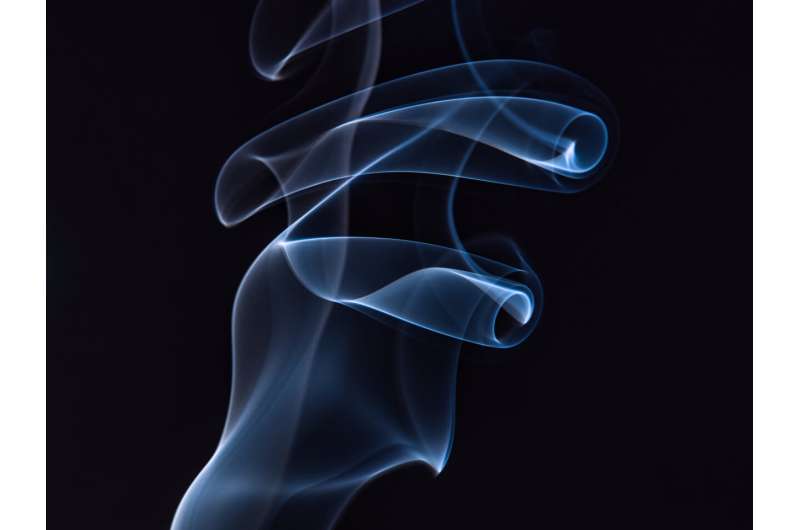Studies may have overestimated effect that smoking bans play in reducing hospitalizations

Previous studies of tobacco policies aimed at reducing hospitalizations may have overestimated the benefits of bans on public smoking and underestimated the benefits of cigarette taxes, according to new research by experts at Rice University, Baylor College of Medicine, Yale University, the Agency for Healthcare Research and Quality and Brigham and Women's Hospital.
In new findings published in the journal Medical Care Research and Review, the authors describe the results of a new nationwide evaluation of the effects of smoking bans and cigarette taxes on three important health conditions that are exacerbated by tobacco use: acute myocardial infarction (heart attack), heart failure and pneumonia. The researchers analyzed county-level data from 28 states on hospitalization rates for these conditions from 2001 to 2008.
"Public-place smoking bans play a critical role in improving public health, and we are not arguing that smoking bans be lifted in restaurants, bars and workplaces," said research co-author Vivian Ho, the chair in health economics at Rice's Baker Institute for Public Policy and director of the institute's Center for Health and Biosciences. "However, policy makers and public health workers must be realistic in understanding the benefits of alternative policy interventions like taxes and bans. We found that raising cigarette taxes can have an immediate beneficial effect in terms of reducing costly hospitalizations. As for smoking bans, while these may eventually lower hospitalizations, our research found no immediate benefit in terms of reduced hospitalizations."
In 2010, the Institute of Medicine reviewed the literature on the relationship between secondhand smoke and hospitalizations and concluded that there was evidence to "support an association between smoking bans and a decrease in the incidence of heart attacks …" However, the authors of the new research found that each of the studies used in the 2010 Institute of Medicine review had "at least one important limitation, such as a small study population, lack of a contemporaneous control population or failure to account for the full range of factors that could influence hospitalizations for smoking-related conditions, such as increased cigarette taxes and local patient and health care market characteristics," according to the new report. While one previous study had concluded that there was no association between public smoking bans and smoking-related hospitalizations, the sample of hospitalizations was incomplete, so the null finding may have been due to measurement error, the authors said.
In the new analysis, the authors measured the effects of smoking bans by comparing counties with no smoking bans to those that implemented comprehensive bans in bars, restaurants and workplaces between 2001 and 2008. Unlike most previous studies, the authors could compare hospitalization rates in counties, both before and after a smoking ban or tax change was introduced, with data from counties that did not change their policies on bans or taxes through 2008. Therefore, the researchers could control for the fact that hospitalizations declined over this time period for other reasons, including improved control of high blood pressure and high cholesterol.
Contrary to most previous studies, the researchers found no evidence that comprehensive public-place smoking bans lowered hospitalization rates in the short-term for acute myocardial infarction or heart failure. However, higher state cigarette tax rates were associated with lower heart failure hospitalization rates for all age groups and lower pneumonia hospitalizations for persons ages 60 to 74.
More information: V. Ho et al. A Nationwide Assessment of the Association of Smoking Bans and Cigarette Taxes With Hospitalizations for Acute Myocardial Infarction, Heart Failure, and Pneumonia, Medical Care Research and Review (2016). DOI: 10.1177/1077558716668646

















